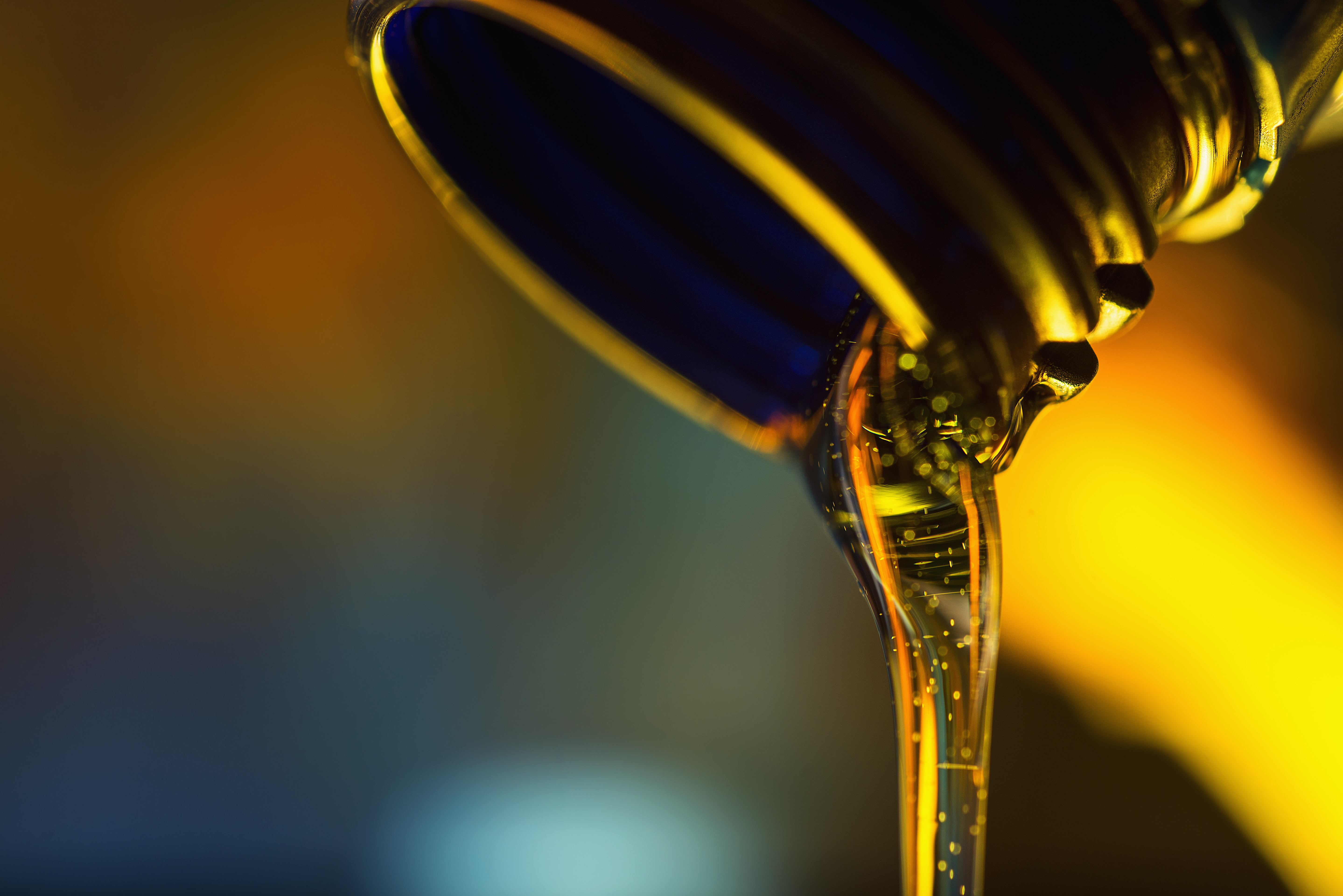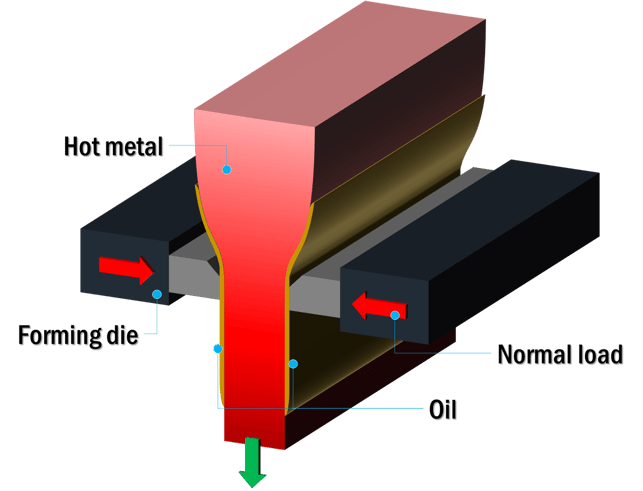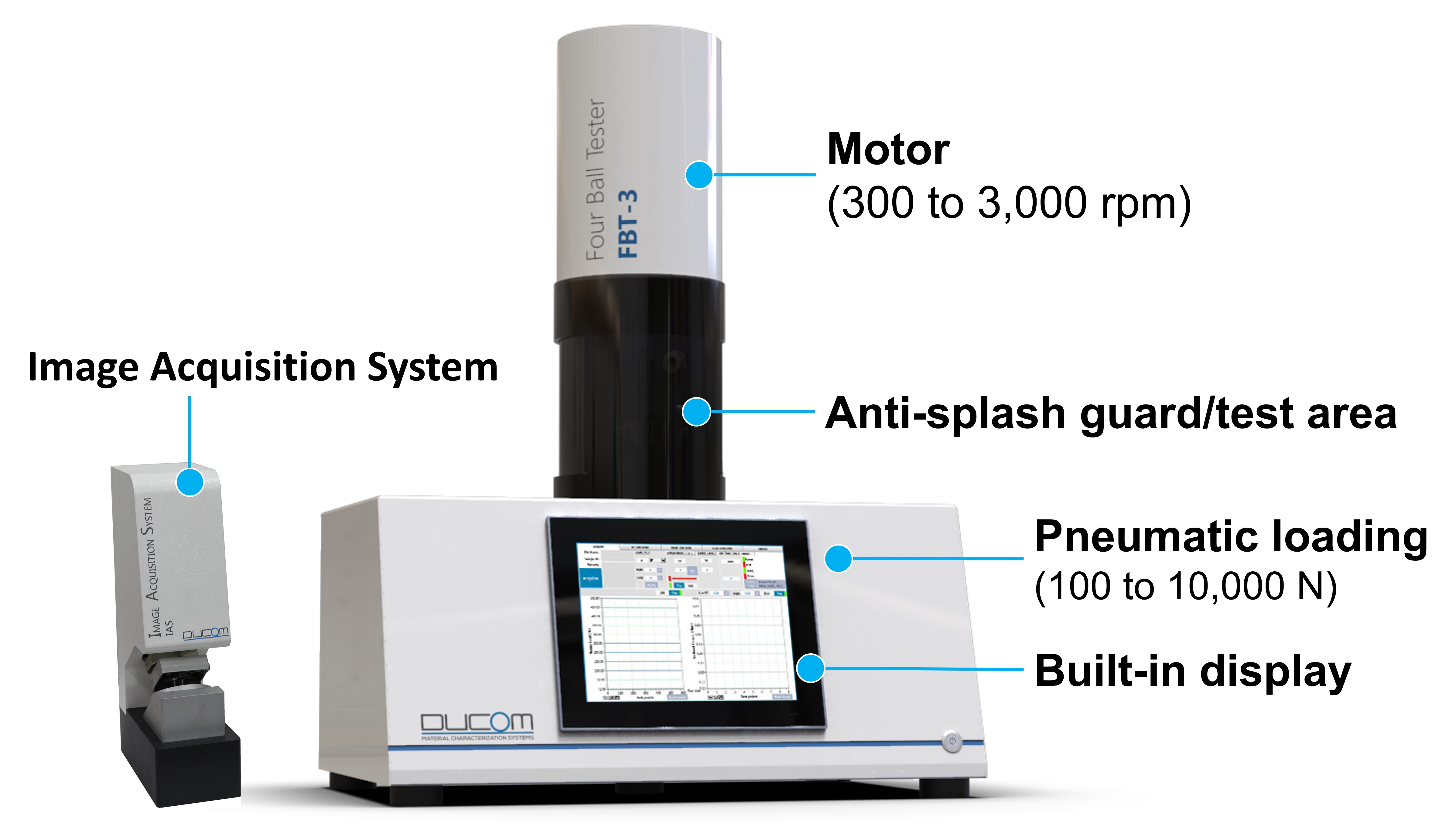
Metal forming processes like sheet forming, wire drawing, tube drawing, cold and hot forming require massive forces which change the shape and size of the metal. Oil introduced between metal and die is responsible for protecting the surfaces. Excessive wear in dies leads to discarding the dies, which is certainly a costly issue. If the formed metal does not have a minimal surface finish, it needs to be further processed and undergo other operations, which will increase the cost and reduce productivity. For Carl Bechem, oil lubricity is an important property, since higher deformation requires higher lubricity to protect the surfaces.
 Figure 1. Schematics of hot metal sheet forming process.
Figure 1. Schematics of hot metal sheet forming process.
Carl Bechem was looking for an instrument to determine extreme pressure and wear preventive properties, able to produce accurate and repeatable results. Ducom Four Ball Tester (see Figure 2) was an ultimate choice to fulfill their requirements. It complies with ASTM standards for determining the weld load capacity and anti-wear properties of lubricants. The image acquisition system provided with the instrument measures the wear scar diameter on the balls faster without dismantling the test setup.
 Figure 2. Ducom Four Ball Tester (FBT-3).
Figure 2. Ducom Four Ball Tester (FBT-3).
CUSTOMER BENEFIT. Ducom Four Ball Tester helped Carl Bechem to improve products and increase their anti-wear properties up to 16% (Initial wear scar of Ø 0.50 mm reduced to Ø 0.42 mm). Considering the increase in the anti-wear properties, it has a substantial effect in tool service life and tool cost. Moreover, it facilitated the development of greases for high load carrying capacity (more than 1000 kg). The instrument is also used for qualifying and validating the properties of oils and greases produced per batch (3000 Kgs). Decrease in quality may lead to potential damage in terms of both resources and finances.
These Stories on friction
USA: +1 (847) 737-1590
India: +91 (80) 4080-5555
Netherlands: +31 (85) 065 74 10